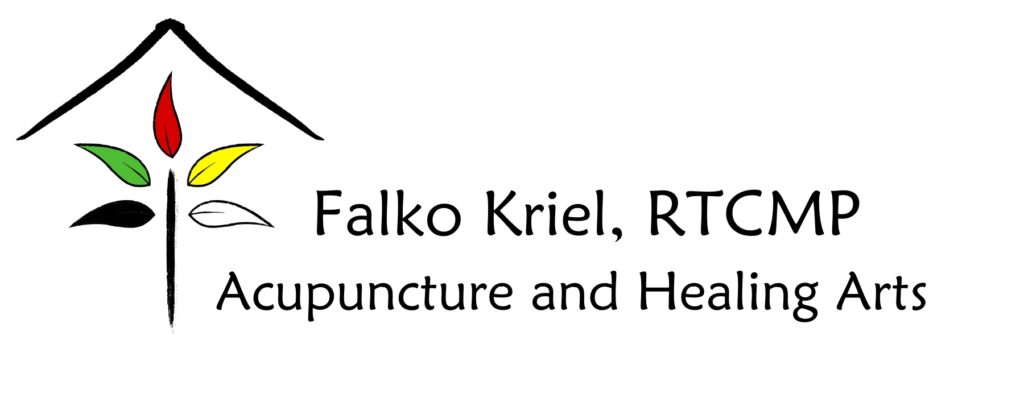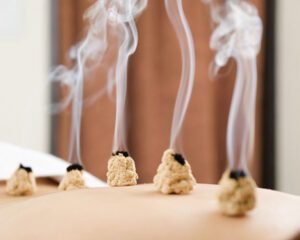Acupuncture, Chinese Medicine, and Insomnia
One of the most frustrating experiences we can have is laying awake in bed at night, completely exhausted but unable to fall asleep. As the hours drag on our heartbeats seem to become louder and louder, like a ticking clock in the room gradually grinding down our nerves. Sometimes we fall asleep easily but find ourselves waking up repeatedly or stirring to the slightest noise around us. The following days are often full of fatigue, irritability, over consumption of caffeine and sugar, and a vague sense of dissociation.
There are many versions of this familiar story, but they are all different sides of the same disorder: insomnia. I have both professional and personal experience with insomnia, having seen the spectrum of cases from mild to severe in my clinical practice and suffered from it myself. Guided by those experiences, I would like to take a closer look at what insomnia is, what is the science behind it, what treatments are often used, and how Chinese medicine and acupuncture fit into this intricate puzzle in a way that may just be the key to unlocking it.
Before diving deeper, the basic question must be asked. What is insomnia? In short, it is a sleep disorder characterized by chronic difficulty with sleep, either the inability to fall asleep, stay asleep, or waking up without feeling refreshed by sleep. A survey conducted by the National Sleep Foundation in 2005 reported roughly one third of the adult population polled admitted to having signs and symptoms of insomnia most or all nights in a year. Nearly the entire population reports having experienced it at some point in their lives, and parents with young children are particularly affected by erratic sleep habits.Unsurprisingly, insomnia is strongly correlated with mental health disorders such as depression, anxiety, and bipolar disorder.
When we sleep, our body goes through ninety minute cycles and two distinct phases of sleep: REM (rapid eye movement) and non-REM sleep. Non-REM sleep involves a succession of three stages as we progress from lighter to deeper, more restful sleep. REM sleep is characterized by rapid eye movements and an increase in brain activity, and is thought to be associated with forming memories, learning, dreaming, and balancing neurotransmitters in the brain. Despite modern research, there is still a lot that is not understand about the science of sleep. However, what we know for sure is that sleep is essential for all systems of the body to function properly.
When we fail to get restful sleep, it affects us on a cellular level. Most of us have heard of the circadian rhythm, or the sleep/wake cycle that we go through in a 24 hour period. What we may be unaware of is that it isn’t just our consciousness that experiences these ups and downs, but our cells as well on a physiological level. As a result, failing to get restful sleep negatively impactsus on a physical level, and can raise blood pressure, increase blood sugar levels, decrease immune system function, decrease athletic performance, and decrease cognitive ability among other things.
By far the most immediately noticeable consequence of insomnia is the changes we experience to our mental health. Difficulty sleeping is a concurrent issue in the majority of people with depression, and can be both a cause and symptom of mental health disorders. Insomnia is also related very strongly to developing anxiety or exacerbating existing symptoms of both depression and anxiety. Even in the absence of a mental health diagnosis, our ability to form new memories, emotionally regulate ourselves, concentrate in the day, and just generally stay positive suffers when our sleep is inadequate.
The causes of insomnia vary drastically and can be very individual. The majority of cases are related strongly to stress. We get stuck in our mental narrative that worries about things, running scenarios or thoughts in our heads on repeat: events in our day, our relationships, our health, our finances, or whatever that insurmountable obstacle is for us. Often this is triggered in us by external trauma which can be profoundly disturbing and get us off our usual habits. Often these disruptions are gradually developed by inadequate coping strategies for chronic stress. For those who wake up often, it can be related to elevated cortisol levels, a hormone associated with stress, that is involved in waking up from sleep. It can also be caused behaviorally. Examples of this are shift work, raising young children, or simply falling out of a sleep routine. Finally, there are physiological causes of insomnia as well that can be related to chronic diseases, such as asthma, sinusitis, pain, and other neurological diseases, reflux, and endocrine system disorders.
If you go to a medical doctor for sleep issues, there are three main avenues that are typically offered as treatment strategies. I’ll start with what I believe to be the most essential and relevant. The first is behavioral therapy such as sleep hygiene. By integrating routines and practices that settle our nervous system and help us feel relaxed, we can start to retrain our mind and body to follow a health circadian rhythm and release melatonin, the hormone that induces sleepiness, at the right time of day. The second strategy is cognitive and mental health therapy, dealing with underlying issues such as depression, anxiety, and chronic stress. If these are major components of insomnia, they will need to be addressed if progress is going to be made. The third is medical treatment. Medications are often prescribed to treat the symptoms of insomnia, but too often people become dependent on them and must manage their side effects, which often include less restful sleep. In general, it is fair to say that medical treatment of insomnia fails to address the root of the problem.
What exactly is the root of the problem? This is not as simple a question as it may seem. Chinese medicine has a unique perspective on sleeplessness and its causes, effects, and treatments. Acupuncture and herbal medicine are both safe and effective treatments for insomnia that have been utilized in Asian cultures for literally thousands of years. However, they are based on a very different way of thinking than modern Western medicine. The largest paradigm adjustment to make is the concept that one disease has many body patterns, and one body pattern has many diseases. By defining what these body patterns of disharmony arein body and mind, we can find out what the unique root of the problem is for each individual person.
In Chinese medicine and acupuncture, we use the theory of meridians or channels. These can be thought of as informational highways in the body that connect various systems and tissues within the body, whether through the circulation of blood and body fluids or energy, which we call qi. This energy can be thought of in many ways, and current research is examining how it connects to modern understanding of physiology. On one level it can be thought of as metabolic energy, produced on a cellular level by the total of all chemical reactions occurring in the body. It can also be thought of as bio electrical energy, such as what is produced when neurons in our nervous system fire signals as the brain and body communicate with one another. However, on a deeper level the concept also includes patterns of thought, emotional responses, and consciousness itself, all of which are largely unexplained by science to this day.
These meridians give us a map of the body that allows us to link the mind and body in ways that modern physiology cannot yet do. Through thousands of years of observation, Chinese doctors have found the inter connectedness of emotional states to different internal organs through the pathway of these meridians. For example, it has been observed that worry upsets the digestive system, and anger produces changes in the liver and gallbladder. Whenever we find disease, we define it as an imbalance in the system’s flow of qi which ultimately disrupts circulation, organ system function, and our emotional well being. When doing acupuncture, we stimulate specific points along the meridians that restore proper flow to the system and by doing so bring the body back into equilibrium. Because of how connected mind and body are on these pathways, they can be used to treat physical and mental diseases, including sleep. Studies show many different mechanisms of action, from increasing circulation and boosting the immune system to releasing endorphins in the brain. Patients leave an acupuncture session feeling lighter, renewed, and with a prevailing sense of peacefulness.
If you go to see an acupuncturist or herbalist for insomnia, the experience will be very different from what you may be used to. An in-depth intake will be used to look at all the systems of the body to give us clues as to what meridians and organ systems may be disrupted. In general, issues with sleep relate to the heart system. In our language you can find numerous references to the heart as being the seat of our emotions and consciousness, despite what we know about the brain. Why is it that when we feel joy, the subjective sensation is felt in our chest? Somatic experience of emotion guides us to effective treatment strategies, and by taking all aspects of the body into account we can find the right path for each patient, who each present a unique manifestation of that pattern. When the heart and emotions are settled, the mind will have a safe and warm place to abide in at night when it is time to rest.
Regardless of whether the model is accepted by modern medicine, practical experience shows its effectiveness. In addition to acupuncture, herbal medicine is a powerful tool for treating insomnia. Often patients tell me they’ve tried supplements, but they don’t work. This is because they probably picked it up at a health food store as a supplement for sleep in general, not for their constitution. Just as patterns are discerned in acupuncture, a skilled herbalist will look at how the various systems of the body are interacting and prescribe a specific formula to address the patient. Vastly different treatment strategies can be used to treat the same disease, because, as you hopefully now know, one disease has many patterns!
Perhaps some will be disappointed that I have not given a list of herbs or points that treat insomnia in this article. I often get this when doing health talks. That is because taking the wrong herb can be dangerous. Although they are much safer than pharmaceutical drugs, they are still powerful medicine and must be taken with the guidance of a trained herbalist. True healthcare is a dynamic process of tending to the individual as if they were a beautiful garden, always pruning and watering where it is needed and making small adjustments to flow with an ever-changing dynamic system. Using acupoints for self massage is safer and I encourage people to do so at home, but acupuncture should only be performed by a licensed acupuncturist who has trained for years to do it safely and effectively.
To sum it all up, insomnia can be a truly awful disruption to our daily lives and is surprisingly common in our society. The fact that a third of us are chronically sleep deprived, not to mention the statistics around depression and anxiety, points to a prevailing problem in our modern lifestyles. I would strongly encourage anyone experiencing insomnia to look back in time at the practices that were used before modern life took hold, and how they may be able to counteract some of the problems we now face. Meditation, yoga, tai chi, qi gong, acupuncture, and Chinese medicine are all examples of arts that are more needed now than ever before, despite our advances in science and medicine.
For those interested in experiencing this yourself please book an appointment AT THIS LINK . I look forward to meeting you!
– Falko






